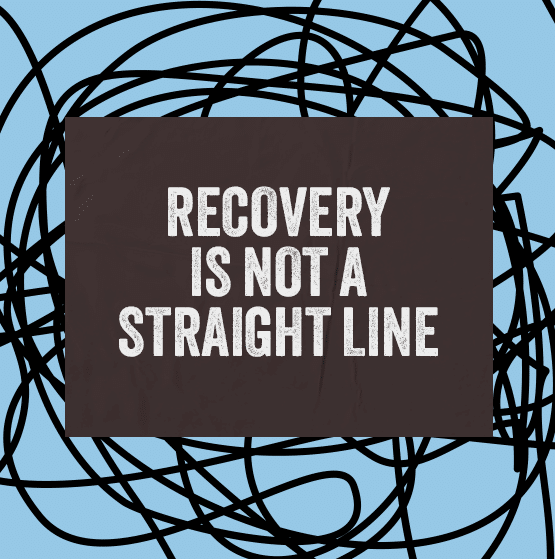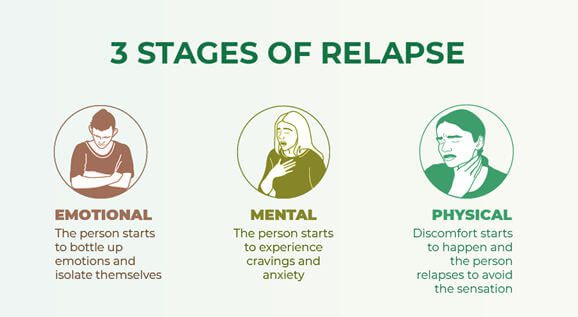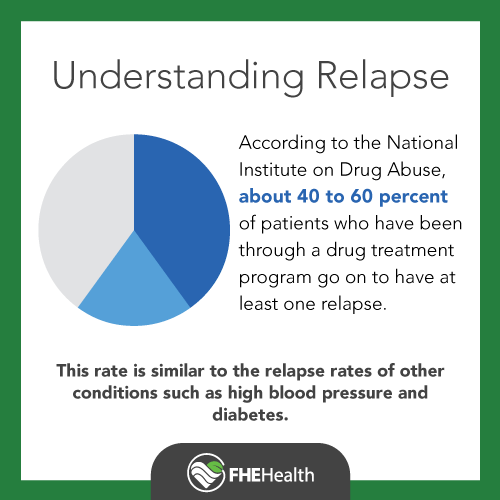Embracing Relapse as a Lesson, Not a Failure: A Guide to Empowering Your Recovery Journey
As we tread the path of recovery, we often perceive it to be a linear journey — one that is smooth and uninterrupted. However, the reality is that recovery is more akin to navigating a winding road with its share of obstacles and, sometimes, relapses. It's important to remember that a relapse does not define your recovery; it does not diminish your progress or your strength. Your recovery is as individual as you are, and for some, relapse is part of their story. For others, it isn't. Either way, it's a personal journey that requires self-compassion and resilience.
Relapse: A Stumbling Block, Not the End
The concept of relapse can be daunting, and the experience itself can feel like a monumental setback. But it's vital to reframe relapse not as the end of recovery but as a stumbling block — an incident from which valuable lessons can be drawn. Relapse does not erase the days, weeks, months, or even years of hard work you've put into your sobriety. Instead, it serves as a reminder of the challenges of this lifelong process and the need for continuous growth and vigilance.
Avoiding the "Fuck-Its" Before and After a Relapse
The "fuck-its" — that impulsive thought pattern that tempts you to throw caution to the wind — can be a precursor to relapse or a reaction to one. This defeatist attitude can take hold during moments of vulnerability or when the journey becomes particularly arduous. To avoid succumbing to this mindset, it's essential to cultivate healthy coping mechanisms and a robust support system. Whether it's therapy, support groups, or a trusted friend, surrounding yourself with understanding and resources can help you navigate these moments of doubt.
Your Recovery, Your Terms
Remember, your recovery is unique to you. It's a personal testament to your strength and dedication. It's not a competition or a race; it's a commitment to bettering your life on your terms. Some people's recovery narratives include relapse; others do not. What matters most is how you choose to move forward, not whether you've stumbled.
Owning Your Relapse
If a relapse occurs, take ownership of it. This doesn't mean berating yourself or sinking into shame; it means acknowledging the slip, understanding what led to it, and taking proactive steps to move forward. Reflect on the circumstances that may have contributed to the relapse and consider what changes can be made to fortify your recovery. Owning your relapse is about taking control of your journey and refusing to let a momentary lapse dictate your future.
Empowering Your Recovery
Empowerment comes from using your relapse as a springboard for growth. It's about harnessing the experience to reinforce your commitment to recovery. Share your story with others in your support network; their insights can offer new perspectives and strategies for strengthening your resolve. Use the experience to refine your recovery plan, incorporating more of what works for you and discarding what doesn't.
Conclusion
Relapse is not something to be feared or ashamed of; it's a part of some people's recovery journeys. By owning your relapse and learning from it, you can empower yourself to move forward with greater wisdom and determination. Recovery is a testament to your individuality and your ability to overcome adversity. It's a journey that belongs to you, one where every step, forward or backward, teaches you more about your strength and your capacity for change.
In the end, recovery is not about walking a perfect path; it's about continuing to walk, no matter the obstacles. It's about picking yourself up, learning from each experience, and knowing that your journey is as unique and valuable as you are. -Belle-









No comments:
Post a Comment